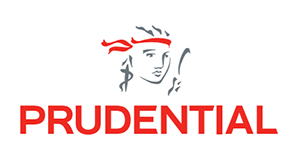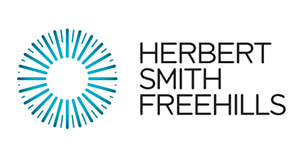FINANCE & BANKING
.
PAGE CONTENTS
BANKING FACILITIES
Sierra Leone’s banking system is overseen by its central bank, the Bank of Sierra Leone and twelve commercial banks operate in the country.
All commercial banks are headquartered in Freetown. Accounts can be held in foreign and domestic currencies. While automatic teller machines are available in Freetown and other parts of the country, credit cards are not widely accepted. Transfers of over US$10,000 in value must be sent through the banking system with the objective of ensuring transparency.
Banks cannot lend in foreign currencies, which is a limitation on local business expansion. This can in turn impact the supply chains of large foreign-run businesses.
FOREIGN EXCHANGE
Currency can be freely converted in Sierra Leone, subject to availability. The Leone is not pegged to a foreign currency and has a floating exchange rate. The Leone has been subject to depreciation since mid-2014 due to declining inflows from the mining sector and, from mid-2015 onwards, a winding-down of Ebola-related donor inflows. Accordingly, the official US$/SLL exchange rate has moved from approximately Le 4,310 in August 2014 to approximately Le 8,600 in February 2019. Typically the US dollar trades in the unofficial, parallel currency market at a premium of 5-10% to the official exchange rate. The continued dollarization of the economy affects the exchange rate.
The Bank of Sierra Leone conducts weekly foreign exchange auctions limited to transactions in non-cash US$. The minimum and maximum amount a single bidder can purchase are determined by the Bank and published in the relevant auction announcement. Only commercial banks operating in the country are entitled to take part and foreign currency purchased through the auction must be used for imports of goods.
The GoSL proposes to take a number of steps to reduce foreign currency demand in order to stabilise the exchange rate and halt depreciation of the Leone. It intends to reduce as much as possible off-shore foreign exchange transactions and compel all remittances and foreign disbursements to be paid through the domestic banking system. It has also indicated a renewed effort to enforce existing regulations including a ban on carrying out domestic transactions in foreign currency. The GoSL is finalising regulations that will address issues such as currency swapping with key trading partners, hoarding of foreign currency in homes and paying Daily Subsistence Allowance in the currency of host countries. Steps to expand domestic production and reduce import dependence are also intended to help stabilise the exchange rate and commodity prices.
ACCESS TO CREDIT
The World Bank’s Doing Business 2019 Report ranked Sierra Leone at 161 out of 190 economies for “getting credit”. The category was assessed by reference to (a) movable collateral laws (that is the strength of legal rights of borrowers and lenders in secured transactions) and (b) credit information systems (the sharing of credit information).
In terms of specific scores on the strength of legal rights, with a score of 5 out of a possible 12, Sierra Leone ranked on a par with Norway (5/12) and above regional comparators such as Ethiopia (3/12), but sat below Nigeria (9/12), Kenya (10/12) and Rwanda (11/12) amongst others. A higher score on the strength of legal rights indicates that collateral and bankruptcy laws are better designed to facilitate access to credit. Along with 17 other countries in Sub-Saharan Africa, Sierra Leone’s score on the depth of credit information index is zero. Although the Credit Reference Act (CRA) 2011 does provide the legislative framework for the Bank of Sierra Leone to operate an interim Credit Reference Bureau Unit, where such units are not operational or cover less than 5% of the adult population on the depth of credit information, the World Bank Report scores the country at zero for this category. The World Bank Report does not cover access to credit more generally. Since 2016, the United Nations Capital Development Fund (UNCDF) and the UNDP have been working with Sierra Leone to improve financial inclusion. In September 2018, the implementation of the Kiva Protocol initiative, on which the GoSL have partnered with the UNCDF, the UNDP and Kiva (a US non-profit organisation), was announced. The project aims to create a nationwide digital identification system to help citizens build credit histories and access financial services. In further steps to improve financial inclusion, the GoSL is engaged in a project to build the national payment switch. The project will expand financial services accessibility, including through electronic forms of intermediation by ensuring integration of commercial bank systems to the benefit of customers.
The lending interest rate in Sierra Leone was reported at 17.92% in 2017, according to the World Bank.
TAKING SECURITY
The Borrowers and Lenders Act 2014 applies to security interests in moveable property, establishing the framework for lenders to register charges on the borrowers’ moveable assets. Security by way of fixed or floating charge can be taken over any class of assets, including land, receivables, cash and shares.
The legislation provides for priority by date of registration and contains provisions in relation to the enforcement of such collateral. The charge and instrument must be registered with the Corporate Affairs Commission within 21 days of the date of its creation. There are few restrictions on the timing and value of enforcement of security. However, there is no guarantee that secured creditors will be paid first, and a creditor cannot enforce against an insolvent debtor without the court’s permission.
It should be noted that the Act’s scope appears to be limited to “lenders”, which are defined as commercial banks or other financial institutions licensed by the Bank of Sierra Leone. The framework established by the Act brings structure to an area which to date has been unclear. It is hoped the Act will continue to improve access to finance and provide lenders with the confidence that their collateral over movables has a solid legal framework supporting it, as was evidenced by the 2017 launch of the Collateral Registry. Reform to expand the scope of the legislation to include registration of immoveable assets (see Key Legislation Affecting Businesses In Sierra Leone).
There have been reforms in Sierra Leone to strengthen the market for security, expanding permissible security to include both future assets and replacements for already secured assets, and establishing a public credit registry to facilitate lenders’ credit checks.
ANTI-MONEY LAUNDERING
Sierra Leone is not on the Financial Action Taskforce list of countries suffering from strategic deficiencies in AML provision, but was identified as a jurisdiction of concern in the US Department of State 2015 International Narcotics Control Strategy Report due to a combination of its position as a strategic sea port and a lack of restrictive border controls.
The Anti-Money Laundering and Combating of Financing of Terrorism Act was enacted in 2012, criminalising terrorist financing (and the failure to report such financing), introducing AML compliance requirements such as “Know Your Customer” and other verification checks, and imposing record-keeping requirements.
The Act also established the FIU, which has wide investigatory powers in respect of money laundering and suspicious transactions. The Terrorism Prevention Regulation 2013, which deals with the freezing of funds in accordance with UN Security Council Resolutions 1267 and 1373, was passed in October 2014. Revised guidelines on preventing money laundering and terrorist financing for both financial and non-financial institutions have been issued by the FIU and the Bank of Sierra Leone.
The Intergovernmental Action Group Against Money Laundering in West Africa (GIABA), which was established by ECOWAS in 2000 and works towards the development of AML strategies in the region, last reported on Sierra Leone in May 2015 (the 12th follow-up to the 2006 Mutual Evaluation). Its report highlighted the progress made by the enactment of the Anti-Money Laundering and Combating of Financing of Terrorism Act 2012, and the Terrorism Prevention Regulation 2013. It also identified positive developments in the supervision of, and training in, AML compliance, led by the FIU and in interagency cooperation to combat money laundering and terrorist financing activities. The latter is a result of the FIU setting up the AML/CFT Inter-Agency Intelligence Coordinating Committee, which comprises the FIU and the leading intelligence and law enforcement agencies.
The FIU and the Central Bank have signed a Memorandum of Understanding to collaborate on AML/Combatting Financing of Terrorism issues. In the MTNDP, the GoSL proposes to enhance the implementation of anti–money laundering laws and practices, and deepen collaboration with Interpol to track illegal finances abroad. The FIU continues its efforts to influence AML efforts: in March 2019 the FIU ran a three day workshop, supported by GIABA and the EU, on AML and combatting financing terrorism.



